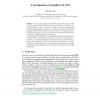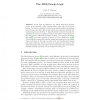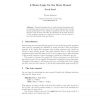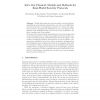TPHOL
2009
IEEE
15 years 8 months ago
2009
IEEE
133
click to vote
TPHOL
2009
IEEE
15 years 8 months ago
2009
IEEE
In this paper a general framework for separation logic inside the HOL theorem prover is presented. This framework is based on Abeparation Logic. It contains a model of an abstract,...
115
click to vote
TPHOL
2009
IEEE
15 years 8 months ago
2009
IEEE
Abstract. Real multiprocessors do not provide the sequentially consistent memory that is assumed by most work on semantics and verification. Instead, they have relaxed memory mode...
141
click to vote
TPHOL
2009
IEEE
15 years 8 months ago
2009
IEEE
Abstract. We consider a formalisation of a notion of observer (or intruder) theories, commonly used in symbolic analysis of security protocols. An observer theory describes the kno...
115
click to vote
TPHOL
2009
IEEE
15 years 8 months ago
2009
IEEE
A new logic is posited for the widely used HOL theorem prover, as an extension of the existing higher order logic of the HOL4 system. The logic is extended to three levels, adding ...
131
click to vote
TPHOL
2009
IEEE
15 years 8 months ago
2009
IEEE
Abstract. We present a comprehensive set of tactics that make it practical to use separation logic in a proof assistant. These tactics enable the verification of partial correctne...
104
click to vote
TPHOL
2009
IEEE
15 years 8 months ago
2009
IEEE
Psi-calculi are extensions of the pi-calculus, accommodating arbitrary nominal datatypes to represent not only data but also communication channels, assertions and conditions, givi...
195
click to vote
TPHOL
2009
IEEE
15 years 8 months ago
2009
IEEE
Abstract. We give an overview of Agda, the latest in a series of dependently typed programming languages developed in Gothenburg. Agda is based on Martin-L¨of’s intuitionistic t...
141
click to vote
TPHOL
2009
IEEE
15 years 8 months ago
2009
IEEE
Abstract. This pearl examines how to verify functional programs written using the state monad. It uses Coq’s Program framework to provide strong specifications for the standard ...
134
click to vote
TPHOL
2009
IEEE
15 years 8 months ago
2009
IEEE
Traditional security protocols are mainly concerned with key establishment and principal authentication and rely on predistributed keys and properties of cryptographic operators. I...




